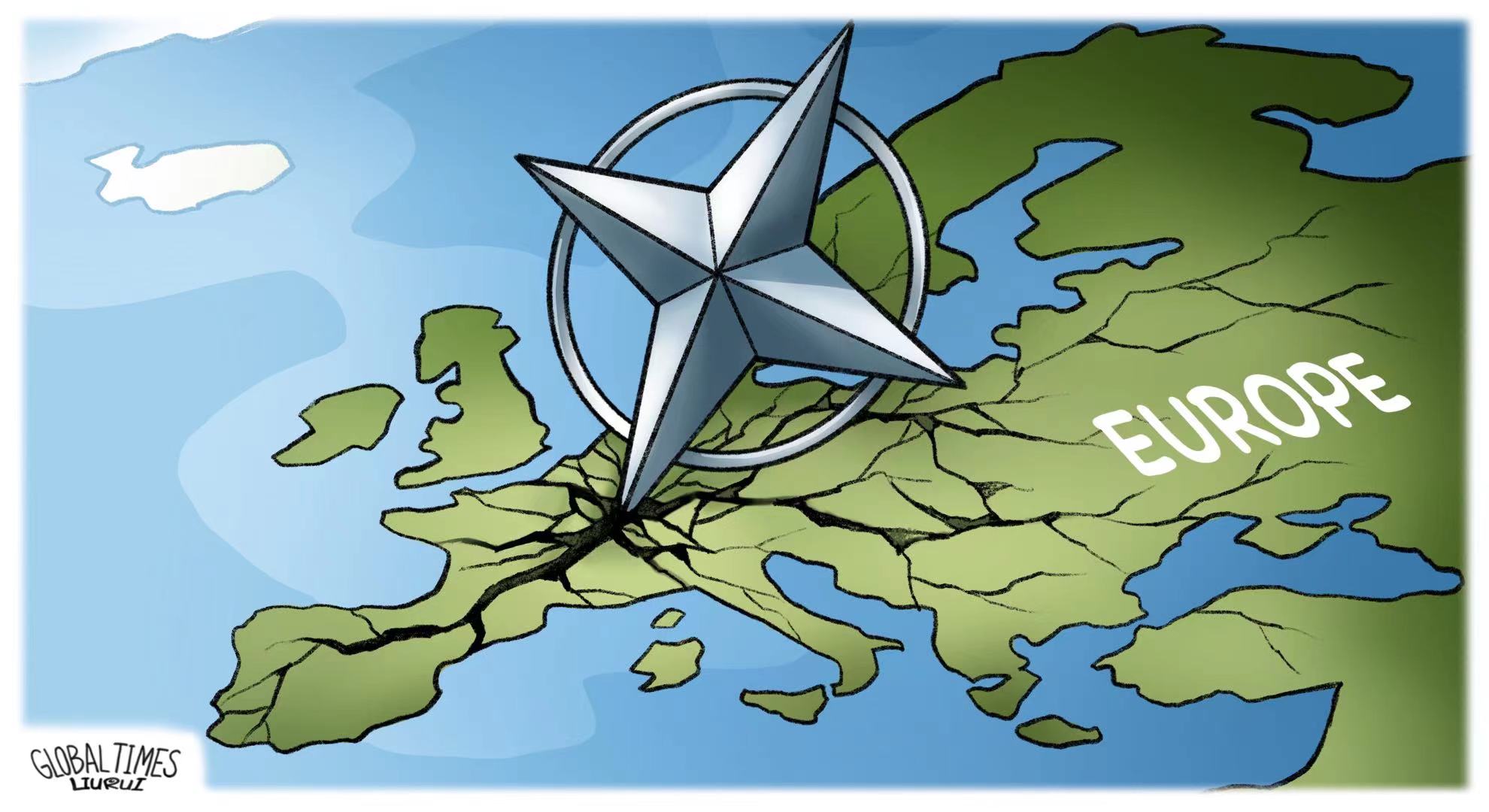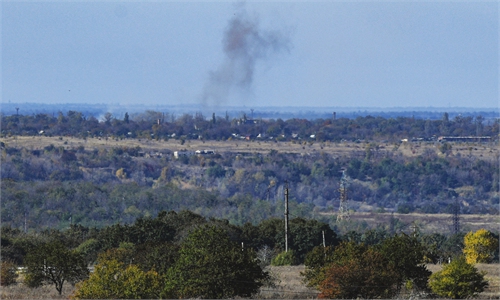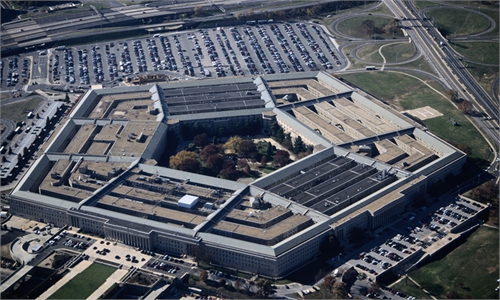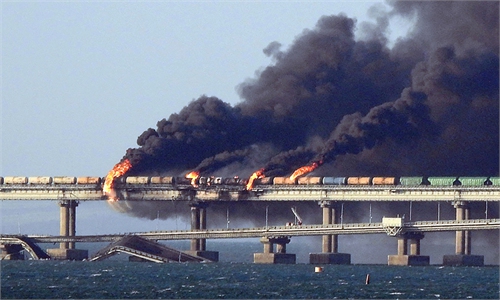NATO members likely to be more divided on supporting Ukraine as crisis drags on: expert

Europe deeply split on warmongering NATO Illustration: Liu Rui/GT
As the Russia-Ukraine conflict drags on, NATO members appear to be more and more divided over military aid to Ukraine, as Chinese analysts said on Sunday that since the beginning of April, more and more European countries are calling for negotiations to solve the crisis.
Extending support and aid to Ukraine was a contentious topic among NATO member countries during a two-day meeting on Wednesday and Thursday at the alliance's headquarters in Brussels, Belgium. One day earlier, NATO Secretary-General Jens Stoltenberg had proposed a 100-billion-euro, five-year package of military aid to Ukraine, which was supported by only the UK, Poland and Latvia, media reported on Friday.
Even Ukrainian President Volodymyr Zelensky has changed his condition for negotiation with Russia, as he has indicated that a return to Ukraine's 1991 borders is no longer a precondition for holding peace talks with Moscow, while he continues to push forward with his own "peace formula" which has been dismissed by Moscow, media reported on March 30.
This makes many NATO and EU members dare to be more outspoken on the sensitive topic about Ukraine, experts noted.
The Hungarian foreign ministry on Wednesday cited Minister of Foreign Affairs Peter Szijjarto as telling a press conference during a break in a NATO foreign ministers' council meeting that the government's main goal was to protect Hungary from the war in Ukraine, as reported by The Budapest Times. As a result, it considers NATO's former decision very important under which the organization is not part of the armed conflict and would do everything to avoid a direct confrontation with Russia, he noted.
The top Hungarian diplomat welcomed the fact that all previous proposals within NATO had respected these red lines and warned that the latest proposal would bring the organization closer to war. When the proposal was discussed, Hungary asked the other member states to consider that coordination of military support had been done so far without the involvement of the alliance he said.
Cui Heng, a scholar from the Shanghai-based China National Institute for SCO International Exchange and Judicial Cooperation, told the Global Times on Sunday that Hungary has always opposed NATO and the EU's approaches to deal with Russia. "Hungary heavily relies on Russia's cheap energy supplies, and Hungary also has disputes and competition on agricultural products with Ukraine."
In the future, more NATO and EU members will choose similar policies as Hungary. If Russia achieves more military breakthroughs and Ukraine keeps losing territory and cannot achieve a meaningful victory, more and more of them will stand closer to Budapest's stance, experts noted.
Many NATO and EU members rely on Russia's energy supplies, such as Hungary, Slovakia, Turkey and Greece, and major European countries like France and Italy who have nuclear power plants that rely on uranium enrichment from Russia and Kazakhstan, are also sharing similar views to engage Russia more pragmatically and stop the loss of supplying Ukraine with money and weapons, Cui noted.
And countries like Hungary, Slovakia and Bulgaria, which have competition with Ukraine on agricultural products, are also likely to join the group to oppose NATO's policy that could extend the conflict, experts said.
"These countries used to be silent when supporting Ukraine was absolute political correctness, but now, Washington and Kiev are all showing the intention to seek a way out, and then these other countries dare to express their opposition more frankly," Cui said.




